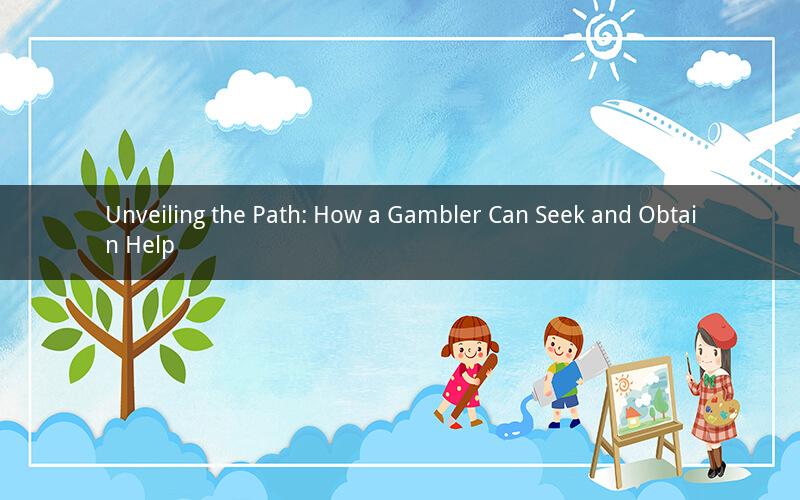
The world of gambling has entangled countless individuals in a web of addiction, leaving many in need of guidance and assistance. If you or someone you know is struggling with gambling issues, this article aims to shed light on the journey towards recovery. Discover how a gambler can get help, the available resources, and the steps to take for a better tomorrow.
Understanding Gambling Addiction
Gambling addiction, also known as compulsive gambling or problem gambling, is characterized by an irresistible urge to gamble despite negative consequences. This addiction affects not only the gambler but also their family, friends, and finances. Recognizing the signs of gambling addiction is the first step towards seeking help.
1. What are the signs of gambling addiction?
Signs of gambling addiction include:
- Loss of control over gambling behavior
- Increasing the amount of money and time spent on gambling
- Trying to stop gambling but being unable to
- Borrowing money or selling possessions to fund gambling
- Feeling restless or irritable when not gambling
- Gambling to escape problems or feelings of guilt
2. Why is gambling addiction dangerous?
Gambling addiction is dangerous because it can lead to financial, emotional, and even physical problems. Individuals may lose their homes, marriages, and friendships due to their gambling habits. Moreover, addiction can contribute to mental health issues such as depression and anxiety.
Seeking Professional Help
For a gambler seeking help, professional guidance is crucial. Therapists, counselors, and support groups can provide the necessary tools to overcome addiction and develop healthier habits.
3. How can a therapist help a gambler?
A therapist can help a gambler in the following ways:
- Assess the severity of the addiction
- Develop a personalized treatment plan
- Teach coping strategies to deal with cravings
- Provide emotional support and guidance
4. Are there different types of therapy for gambling addiction?
Yes, there are various types of therapy available for gambling addiction, including:
- Cognitive-behavioral therapy (CBT)
- Dialectical behavior therapy (DBT)
- Family therapy
- Group therapy
Support Groups
Support groups offer a sense of community for individuals struggling with gambling addiction. These groups provide a safe space to share experiences, learn from others, and gain insights into recovery.
5. What are some popular support groups for gambling addiction?
Some popular support groups for gambling addiction include:
- Gamblers Anonymous (GA)
- Gambler's Help
- Gam-Anon
- SMART Recovery
Alternative Resources
Apart from professional help and support groups, there are various alternative resources available to help a gambler overcome addiction.
6. What are some alternative resources for gambling addiction?
Alternative resources for gambling addiction include:
- Online forums and communities
- Online therapy services
- Self-help books and guides
- Gamblers' hotlines
Steps to Recovery
Overcoming gambling addiction is a journey that requires dedication and persistence. Here are some steps to help a gambler on their path to recovery.
7. What are the steps to recovery for a gambler?
The steps to recovery for a gambler include:
- Acknowledge the problem and accept help
- Set goals for recovery
- Create a support network
- Develop coping strategies
- Engage in self-care
Conclusion
Recovery from gambling addiction is possible with the right resources and support. By seeking professional help, joining support groups, and utilizing alternative resources, a gambler can overcome their addiction and build a better life. Embrace the journey towards recovery and take the necessary steps to transform your future.
Q1: How long does it take to recover from gambling addiction?
A1: The duration of recovery varies for each individual. Some may experience immediate improvements, while others may require ongoing treatment and support.
Q2: Can someone recover from gambling addiction on their own?
A2: While some individuals may find success in self-help methods, seeking professional help and joining support groups are often more effective in the long run.
Q3: Are there medications available to treat gambling addiction?
A3: Medications are not commonly used to treat gambling addiction. However, some individuals may benefit from medications to address co-occurring mental health disorders.
Q4: Can family and friends help in the recovery process?
A4: Absolutely. Family and friends play a crucial role in supporting the gambler throughout their recovery journey. Encourage them to seek help, participate in family therapy, and be there for emotional support.
Q5: How can one prevent relapse in gambling addiction?
A5: To prevent relapse, individuals should maintain a strong support network, continue attending therapy and support group meetings, and develop healthy coping mechanisms. Additionally, identifying and avoiding triggers is essential to maintain a gambling-free lifestyle.